Young people give, but also demand the pledge of an equal opportunity society
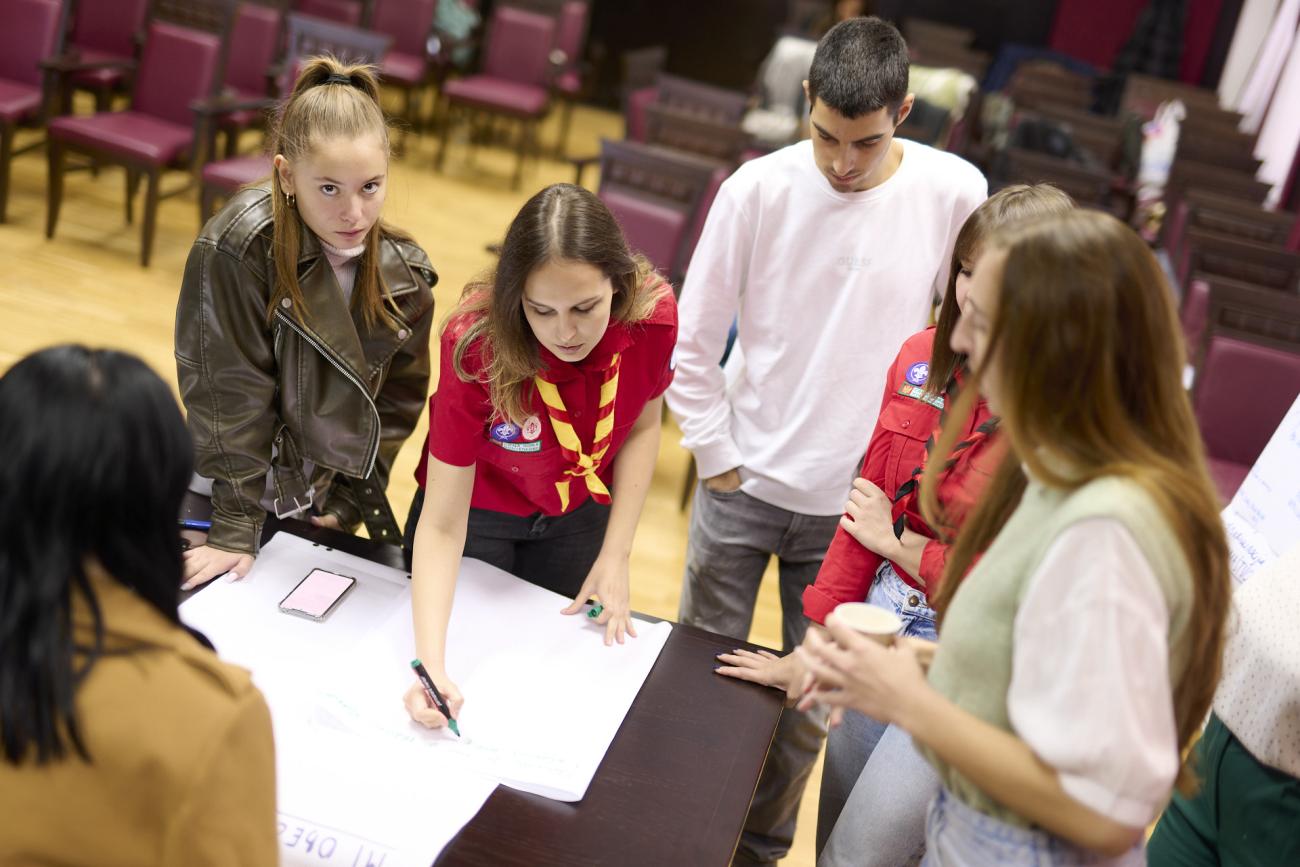
The most important thing is to understand that what we don't want to happen to us, we shouldn't do to someone else either
Podgorica, 10 November 2023
The 75th anniversary of the Universal Declaration of Human Rights gathered young people from all over Montenegro in the courtroom of the Faculty of Law. The occasion was unique: the creation of the "Pledge for the Advancement of Human Rights".
In order to create the text of the Pledge, the young people discussed their position in society and the state of human rights in Montenegro. They expressed their concerns about the lack of respect for the human rights of young people, especially highlighting the problems that need to be addressed urgently.
They feel particularly vulnerable and insecure in the online world, where they are exposed to violence, hate speech, and harmful content. Gender inequality is one of the biggest challenges, and there is no social understanding that sexual violence often starts with verbal violence, sexist statements, and sexist hate speech. As these situations are frequent in the school environment, young people are united in their demand to create a safe and supportive environment in schools for all students.
„Girls, who are inappropriately touched by other students in primary and secondary school, do not know that they can complain, and they rarely even decide to speak out loud about it and seek help.“
Dijana Leković
Youth from the north of the country specifically highlight the issue of gender-based discrimination, and the pressure on girls and young women to adhere to traditional gender roles – those related to home and family life, while the support for their education and personal development is limited.
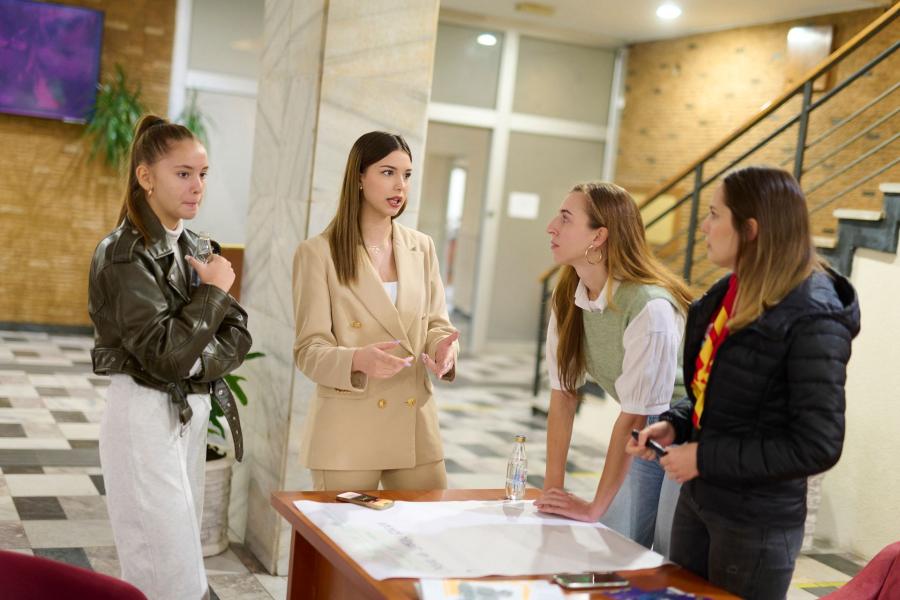
Young people emphasize the importance of being informed about support options and tools that would enable them to adequately understand their rights, and seek help and ways to protect those rights. In addition, young people warn of the neglect of the topic of mental health, highlighting the lack of support during adolescence and early adulthood. The lack of space for consultation and support, along with the lack of investment in the mental health of young people, results in discrimination, stigma, learning difficulties, and other forms of violation of their human rights.
„That is why it is important to invest additional efforts in education, raising awareness and promotion of equality, to create an inclusive society, in which every individual feels equal.“
Biljana Pejović, Head of the Department for Gender Equality, Ministry of Human and Minority Rights
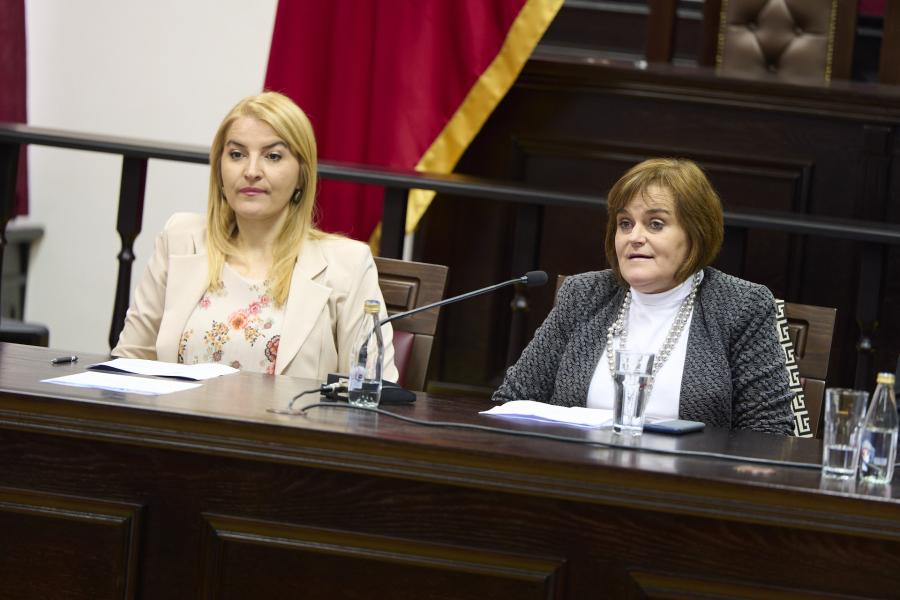
Members of the Roma and Egyptian communities encounter distinct difficulties in asserting their rights when it comes to access to education, from the lack of learning materials in the Romani language to the non-acceptance of their peers. A similar problem exists in the health sector. As they stated, medical staff are often not able to assist members of this community, due to language barriers, but also numerous prejudices, as shown by examples shared by the young people from this community.
„Children from the Roma community often face discrimination. We don't have textbooks in the Romani language, and we are required to study in Montenegrin, which is more difficult for me because I don't have the opportunity to have something explained to me in my native language.“
Jasmina Beriša
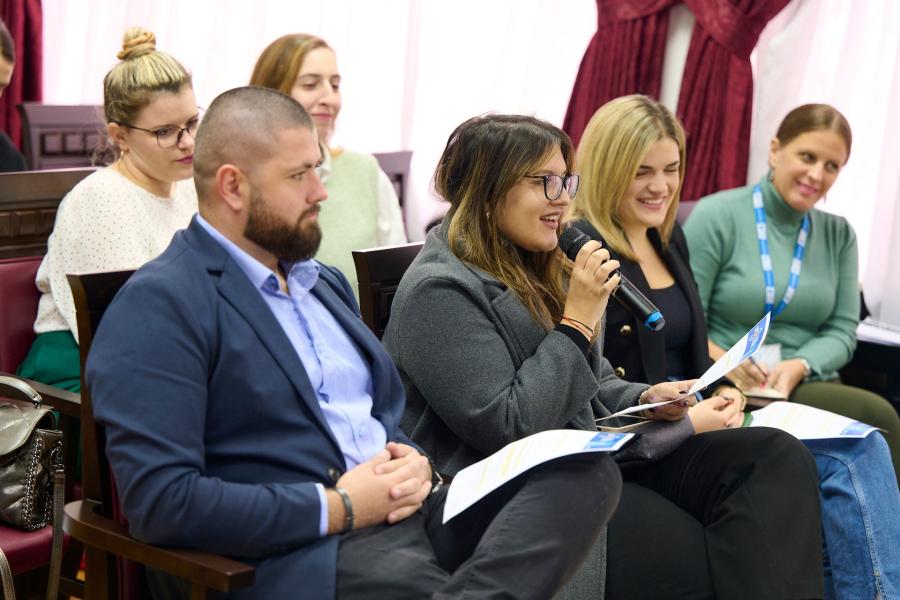
Young people with disabilities cite inadequate physical (as well as informational) access to institutions, and the lack of adaptation of learning tools as a daily problem they face. In addition to the fact that their education process is significantly difficult, these young people feel insecure due to the uncertainty of their perspective on the labor market, and the fear that they will be discriminated there as well.
„Persons with disabilities do not have adequate access to institutions, and numerous other physical barriers. In the post office, for example, there is no ramp or adequate access for people in wheelchairs or those who move with the help of other walking aids.“
Luka Trebješanin
The importance of integrating civic education into formal educational programs was also emphasized. It would teach young people to take initiative, develop critical thinking, and creative problem-solving, and make them become responsible citizens, who know their rights and obligations in society.
„It is important that civic education is studied in educational institutions, through which human rights would be studied, and a culture of dialogue, diversity, coexistence and zero tolerance for all forms of violence and discrimination would be nurtured.“
Nerma Dobardžić, Deputy Protector of Human Rights and Freedoms of Montenegro
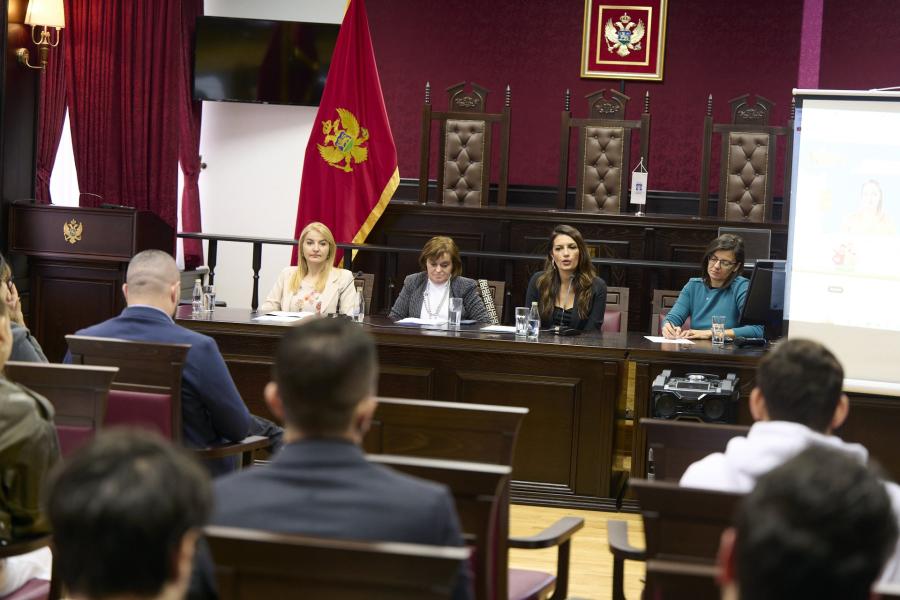
Children and young people from the north of the country and those from rural areas do not have the same access to possibilities as their peers from other regions. The imbalance in access to sports and youth activities results from the centralization of youth activities and events in the capital city, which hinders young people from other cities, especially in the northern region, from having activities in their local communities. In addition to not having sufficient opportunities and programs for personal and professional development, young people from rural areas are limited in extracurricular activities, hobbies, and sports activities – sometimes due to inadequate public transport connections – which often depend on the financial capabilities of their parents.
Young people face specific challenges when entering the labour market, usually already during high school when they start their first seasonal jobs. They are often not aware of the risks associated with the workplace and are not informed about their rights and work safety. Furthermore, a significant issue is the lack of information about where to seek protection, which further increases the insecurity among young people.
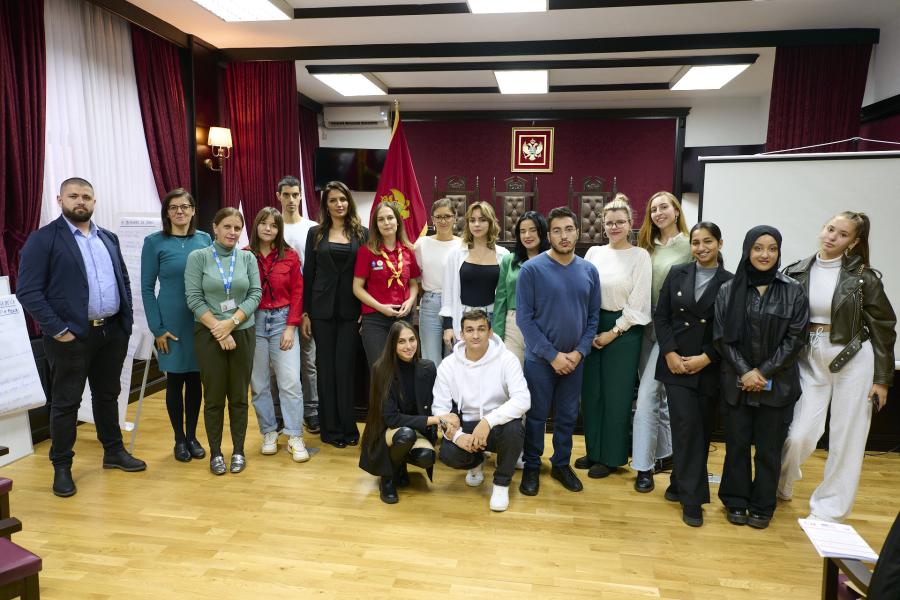
Young people are aware that in order to overcome key challenges, mutual trust, and support is necessary since all problems are interconnected and equally important. They conclude that in order to reach a just and inclusive society in Montenegro, it is essential to respect the human rights of all children and youth, regardless of personal characteristics. Therefore, they emphasize the importance of tolerance, acceptance, and nurturing of diversity in the country. Young people call for solidarity and a joint effort for a better future, where problems are recognized, discussed, and resolved, thereby building the basis for a society where everyone is respected, has equal opportunities, and can live with dignity.
"The most important thing is to understand that what we don't want to happen to us, we shouldn't do to someone else either." Just as we don't want our rights to be endangered, we shouldn't endanger the rights of others, either."
Tanja Laketić
CHILDREN AND YOUNG PEOPLE PLEDGED:
-
We will respect the rights and freedoms of others and demand that others respect ours.
-
We will promote solidarity, empathy, interculturalism, peace and protect the environment.
-
We will express our opinions and openly talk about problems.
-
We will counter peer, gender-based, sexual, and online violence and discrimination based on gender, sexual orientation, race, religion, and nationality.
-
We will not spread hate speech.
-
We will advocate for human rights education of children and youth, mental health, and decent work.
-
We will advocate for equal opportunities, inclusive education, health, and social protection, especially for children and youth with disabilities, exposed to poverty, Roma, Egyptians, LGBTIQ+.
The Youth Pledge was presented at the high-level event marking the 75th anniversary of the Universal Declaration of Human Rights in Geneva on 11 and 12 December, 2023.
The activity was led by UNDP and UNICEF, through the interagency UN working group on human rights and LNOB.
UNDP supported the activity through the project Enabling dialogue and collaborative action for countering hate speech and bridging divides, financed by UNDP Funding Window for Governance, Peacebuilding, Crisis and Resilience, with contributions of Sweden and Luxembourg.




